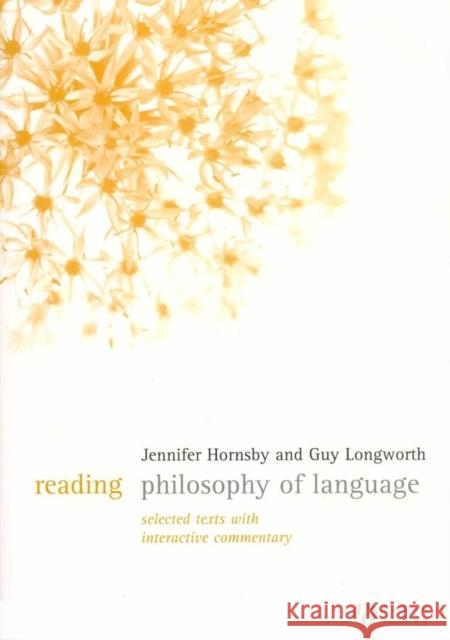Reading Philosophy of Language » książka
topmenu
Reading Philosophy of Language
ISBN-13: 9781405124850 / Angielski / Miękka / 2005 / 336 str.
Designed for readers new to the subject, Reading Philosophy of Language presents key texts in the philosophy of language together with helpful editorial guidance.
- A concise collection of key texts in the philosophy of language
- Ideal for readers new to the subject.
- Features seminal texts by leading figures in the field, such as Austin, Chomsky, Davidson, Dummett and Searle.
- Presents three texts on each of five key topics: speech and performance; meaning and truth; knowledge of language; meaning and compositionality; and non-literal meaning.
- A volume introduction from the editors outlines the subject's principal concerns.
- Introductions to each chapter locate the pieces in context and explain relevant terminology and theories.
- Interactive commentaries help readers to engage with the texts.











